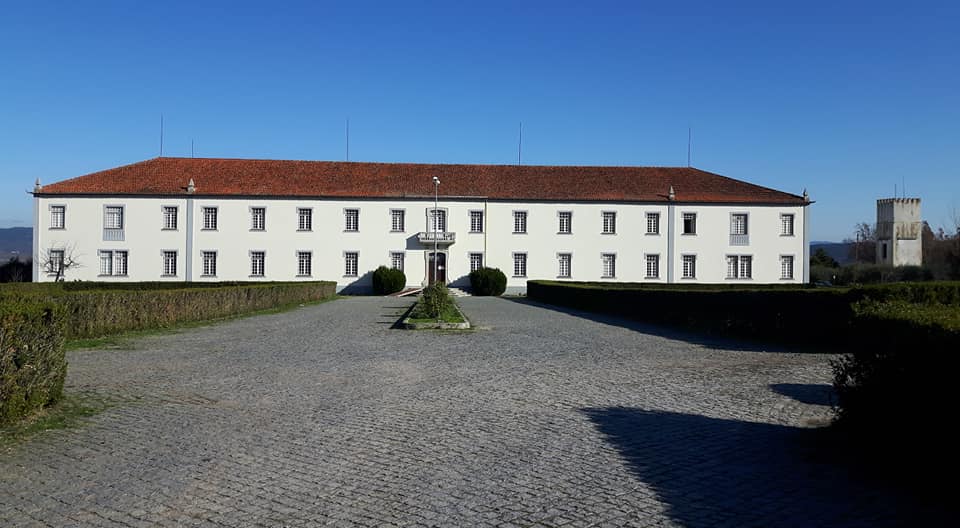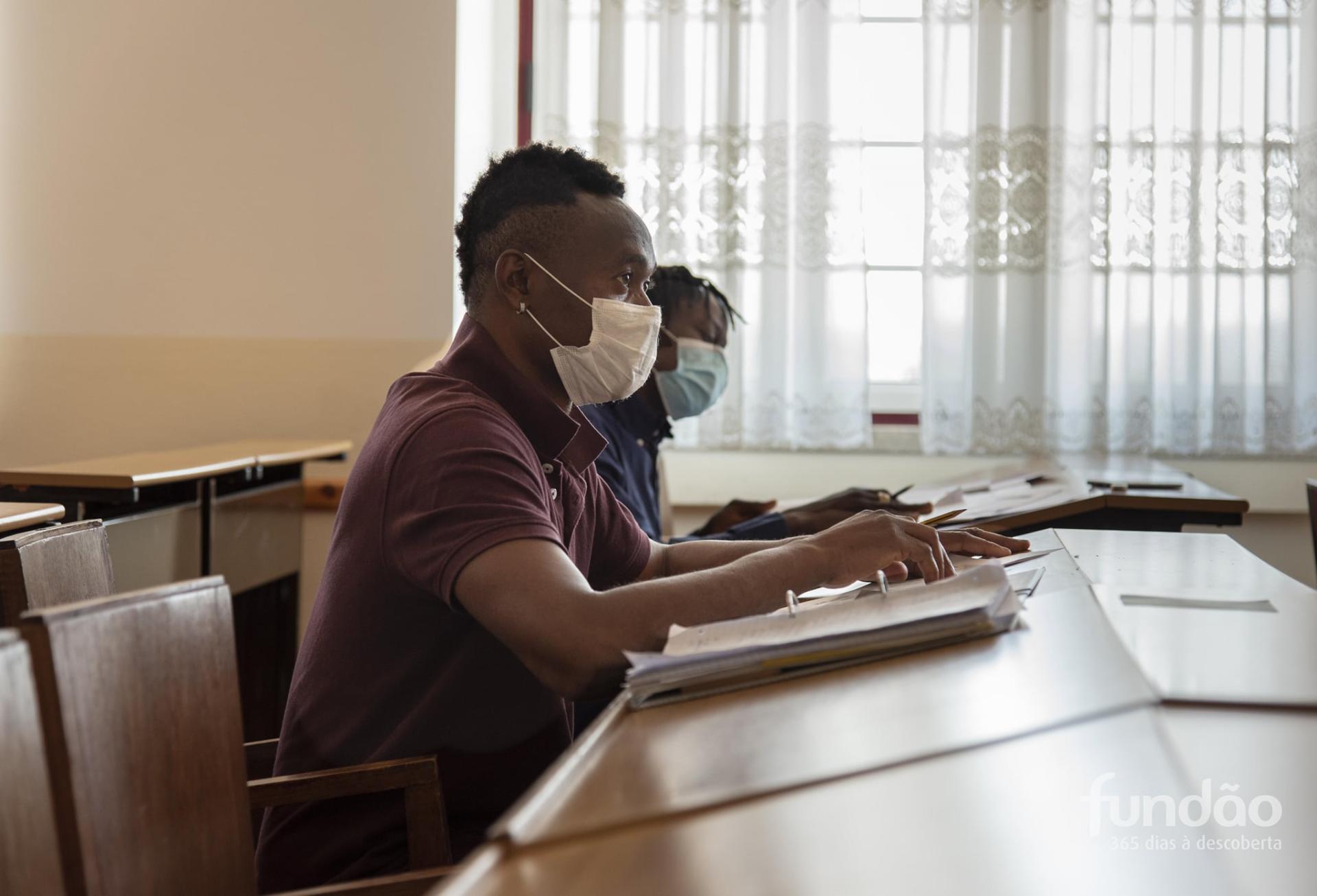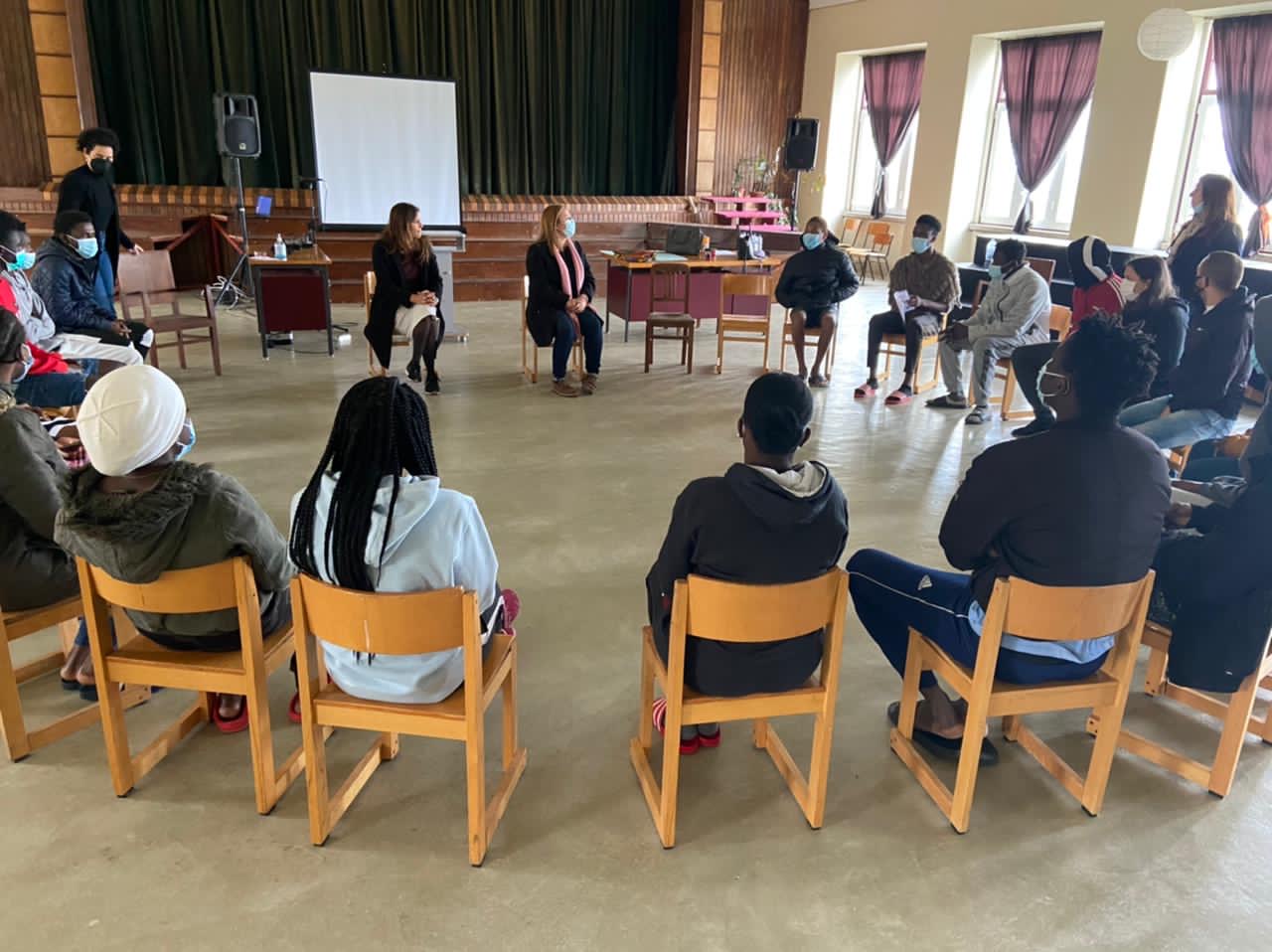Fundão Migration Center
Basic information
Project Title
Full project title
Category
Project Description
Fundão Migrations Center is a project that hosts refugees, international students, and seasonal foreign workers, helping 1062 migrants from more than 60 nationalities. The project consists of an innovative and multidimensional holistic approach in response to the sociodemographic challenge, aiming to foster migrant’s integration. The project methodology is based on 3 areas: Welcoming; Integration; and Community Life to achieve a multicultural, sustainable, inclusive, and diverse society.
Geographical Scope
Project Region
Urban or rural issues
Physical or other transformations
EU Programme or fund
Which funds
Description of the project
Summary
Situated in the center region of Portugal, Fundão is a small municipality with around 30 thousand inhabitants. Similar to other low-density regions of Europe, Fundão struggles with sociodemographic and economic challenges arising from the population aging and desertification.
To face these challenges, the Municipality of Fundão developed an ambitious project for the migrant’s reception. Based in an old catholic seminary built in the 1930s, that has been rebuilt for this project, Fundão Migrations Center it’s a two dimensions project – social and economic - that hosts and/or supports more than a thousand migrants from more than 60 nationalities, with different origins such as asylum seekers/refugees, seasonal foreign workers, and international students.
The project methodology is based on 3 intervention areas:
- Hosting – to ensure a close network and proximity with the migrant community, to better understand their realities and provide tailored responses upon arrival;
- Integration – to empower the migrant population so they can fulfill all their potential and rights;
- Community Life – to integrate migrant communities through cultural offerings and initiatives that promote cultural diversity and enhance the practice of active citizenship by creating migrant associations and disseminating information and active citizenship events.
Fundão Migrations Center provides housing for 70 asylum seekers/refugees, 240 seasonal foreign workers, and 120 foreign students. It also provides a Housing List published in several languages that allows access to decent housing and affordable rents. It establishes partnerships with schools for certified learning of the Portuguese language and guarantees individualized follow-up with training strategies and tools in financial, social, educational, and housing autonomy that guarantee full integration.
Key objectives for sustainability
Fundão Migration Center project has 2 main objectives in terms of sustainability – one material and the other functional.
Firstly, Fundão Migration Center is based in an old catholic seminary built in the 1930s. The idea that justifies this choice is the reuse and reconstruction of old emblematic buildings in the city, which would otherwise be degraded. The aim was also to establish a connection between traditional and modern challenges, to be able to give these buildings a new purpose, to regain a sense of belonging, and to establish a physical linkage point between the new and old fundanenses.
Fundão Migration Center project also provides a Housing List published in several languages that allows access to decent housing and affordable rents. These houses are situated in the city’s historical center that, due to emigration, aging of the population, and desertification were abandoned and degraded. This project allows the reuse of the houses and provides a new life to the historical center.
The second key objective in terms of sustainability is directly linked with the city's future. Situated in the center region of Portugal, in a low-density region of Europe, Fundão struggles with sociodemographic and economic challenges arising from the aging of the population and desertification. If these problems are not addressed, the city's future is in jeopardy: companies and jobs do not settle, services, schools, and hospitals are at risk of closing.
Fundão Migration Center faces these challenges, creating the conditions to attract, support, and host migrants of different origins. With an innovative and multidimensional holistic approach based on a formal methodology, this project guarantees the sustainability of the city, while assuring the migrant community to develop their human capital potential in a multicultural, sustainable, inclusive, and diverse society.
Key objectives for aesthetics and quality
Fundão Migration Center project has 2 main objectives in terms of aesthetics and quality of experience –material and sociocultural.
Fundão Migration Center is based in an old catholic seminary built in the 1930s. The idea that justifies this choice is the reuse and reconstruction of old emblematic buildings in the city, which would otherwise be degraded. The Fundão Migration Center was modernized and equipped to host and support migrants of different origins. The main goal was to preserve the old symbols of the seminary, typical of the Portuguese society, and connect them with the new multicultural, diverse society. To fulfill this purpose, the Fundão Migration Center preserved the former catholic chapels and created new prayer centers of different religions to ensure the right of freedom of religion.
Since Fundão Migration Center hosts and supports migrants from different origins and cultures, to celebrate this diversity the project developed a photographic exhibition featuring the migrant community that has been presented in the historical center of the city and the local museum. With the direct help of migrants, the project also painted a mural at the Fundão Center for Migration that has since become a symbol of a multicultural, sustainable, inclusive, and diverse society.
As a direct consequence of the Housing List, the historical center of Fundão has been rehabilitated and is today a living center of diversity and multiculturality. The main street of the city is now a mix of colors, odors, food, beliefs, and cultures.
The Fundão Migration Center also has as one of the main objectives the integration of migrant communities through cultural offerings and initiatives that promote cultural diversity and to enhance the practice of active citizenship, through the creation of migrant associations and the dissemination of information and active citizenship events.
Key objectives for inclusion
Fundão Migration Center is designed to address the sociodemographic and economic challenges arising from the aging of the population and desertification. Nevertheless, one of the main purposes is the inclusion of migrants.
During the last decade, the growth of migratory flows is associated with socio-political problems. If the integration of migrants is not well managed, migrants can be left in a fragile situation - poverty, unemployment, exploitation at work, housing shortage and in bad conditions, and inability to access various services. The native population can also turn against migrants, increasing situations of discrimination and racism.
Inclusion is key to effective and comprehensive migration-management approaches. Successful integration is essential, not only in terms of the benefits, but also for the well-being of migrants and the security, stability, social harmony, and prosperity of society. This project faces integration of migrants as a central matter, and for that developed a comprehensive approach to allow migrants to develop their human capital, fostering economic and cultural growth while creating links between the hosting society and migrant community.
The project responds to wide and diverse types of migrants, with different cultures, necessities, and expectations – refugees, seasonal workers, and students. To promote better integration and respect this diversity, we developed a 3-area methodology:
- Hosting
- Integration
- Community Life
Results in relation to category
The results and impacts achieved by the Fundão Migration Center are wide and diverse. Regarding statistical data, according to the Portuguese Immigration and Borders Service, from 2016 to 2020 the number of migrants in Fundão increased from 492 to 1062. The data collected from the municipally updates this number to around 1300s in 2021, which represents around 10% of the total population. This demonstrates that one of the main challenges that the project addressed is being successfully done.
In September 2018, the Fundão Migration Center started to host refugees and asylum seekers. Up until today, the project hosted 101 refugees/asylum seekers. Only 16 left the city. Of the 85 that choose to stay in Fundão, 50 already live autonomously. This project gave them the tools to be secure, stable, integrated, and happy. More than refugees, they are now an integral part of society, a neighbor, a Fundanense.
The methodology developed by the project helped to create a clear sustainable path towards inclusion and autonomy, and with it, migrants can fulfill their full potential and be a part of society.
The program Housing List helped to guarantee housing for migrants, who would otherwise be in situations of need. It also granted the possibility to rebuild and repopulate the historical part of the city.
This project also involved physical transformations, especially with the reuse of old emblematic buildings. The Fundão Migration Center respected and recovered the traditional symbols associated with those buildings, and with it booster a connection between the locals and the migrants.
Finally, one of the direct consequences of the work developed by the Fundão Migration Center was the spontaneous relationship between all groups. One of the greatest examples of this is the creation of a music duo between a local musician and a refugee. This is a true, honest representation of a multicultural, sustainable, inclusive, and diverse society.
How Citizens benefit
The involvement and participation of citizens and civil society is a fundamental part of the Fundão Migration Center. It directly works in 2 different aspects.
Firstly, the methodology developed by the project implies a direct and concerted connection with the migrant population. Hosting implies listening to the basic needs of migrants and working with them to fulfill these needs. In Integration, the team in charge of the project created a “life plan” – a series of individual conversations with the migrants were, mutually, we try to establish objectives, interests, passions, and establish strategies to achieve them. Community Life, the team tries to understand and foster the artistic skills of migrants, promote cultural events and festivities of different origins.
To be able to better understand migrants needs and promote their involvement in the project, the Fundão Migration Center created several mediators that serve to organize migrant communities and establish and formal linking point to the main political leaders of the city.
Secondly, the participation of local society is crucial to the success of the project. To promote integration and inclusion while working with migrations it’s mandatory to create partnerships with local society to prevent potential social problems. From the moment the project started, all activities were open and publicized to all people. One of the greatest examples of it is the activity “Dances of the World”, where locals would come to the Fundão Migration Center to mix and dance with different rhythms and cultures. The project also created a volunteer bank which would not only help the team with different tasks but also promote the relationship between migrants and locals.
Physical or other transformations
Innovative character
Although a lot of municipalities situated in low-density regions of Europe face the same sociodemographic and economic challenges arising from the aging of the population and desertification as Fundão, the Fundão Migration Center is the first project in Portugal that developed an ambitious, innovated, multidimensional holistic approach that not only guarantees the sustainability and future of the city with economic and population growth but also focuses on the inclusion of these migrants during their stay, allowing them to develop their human capital.
Fundão Migration Center guarantees safe and decent housing for three groups of more fragile migrants: seasonal workers, international students, and refugees/asylum seekers. To date, the Fundão Migration Center hosted 101 refugees/asylum seekers, 240 seasonal foreign workers, and 120 international students.
The project developed an innovative methodology with 3 areas of intervention: Hosting; Integration; Community Life that creates a clear sustainable path towards inclusion. In addition, the Housing List published in several languages allows access to decent housing and affordable rents, boosting the prospects of autonomy.
This methodology enables progress in 4 strategic municipal necessities:
- Housing: reuse and reconstruction of old buildings and streets; decent and affordable houses for migrants;
- Formation: capacitate the migrant community, ensure safe and stable work and reinforcement of the supply of labor;
- Empowerment: individualized follow-up with training strategies and tools in financial, social, educational, and housing autonomy that guarantee a full integration;
- Portuguese Language: establishment of partnerships with Training Schools for learning Portuguese aimed at social and labor integration;
- Transport Network: the creation of a transport network that facilitates the journey from home to work.
Learning transferred to other parties
The results of Fundão Migrations Center are a great source of data, documentation, and testimonies. Being the first project in the country that works and connects the sociodemographic challenge with the inclusion and integrations of migrants, all the results are groundbreaking and necessary for future similar projects.
The methodology developed by the project also proved to be a fundamental part. In addition to guaranteeing a clear sustainable path towards inclusion and autonomy, it proved to be a simple, interactive form to envelop the migrants, help in a way that goes beyond mere assistance, that they feel that they are part not only of the construction of their future but of the whole of society.
Another major part of the success of the project was to establish a connection between the locals and the migrant community. To that, the physical aspect of rebuilding and reusing old buildings was an important starting point. The openness of the project - inviting locals to be a part of the activities, creating a volunteer bank proved to be the best way to promote a healthy multicultural, sustainable, inclusive, and diverse society.



